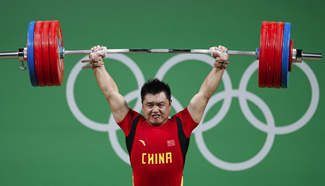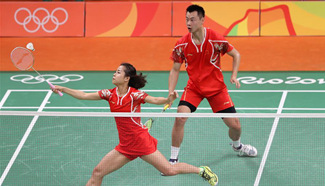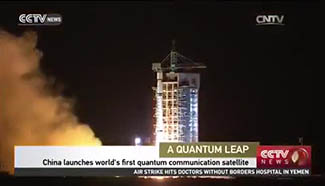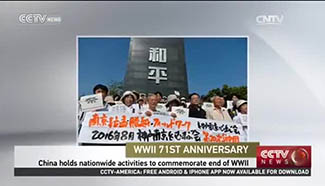by Ahmed Shafiq, Zheng Kailun
CAIRO, Aug. 16 (Xinhua) -- China and Egypt should carry out extensive archaeological cooperation to help each other discover their buried treasures, which is necessary for both the Chinese and Egyptian civilizations, experts said here Monday.
Wang Wei, head of the institute of archaeology under the Chinese Academy of Social Sciences (CASS) told Xinhua that over the past 30 years, Chinese archaeologists have been concentrated on their own excavation and relic protection, but now they are ready to carry out new missions with international partners.
"Now we are prepared to work overseas, both because we have enough financial supports, and we have realized that as a major country in the world, it is not enough to only focus on our own historical sites and relics," Wang said.
Chinese archaeologists have acquired much experience and expertise from working on Chinese relics, he noted.
China now holds the world's leading three-dimensional remote sensing and imaging technology, as well as advanced indoor testing and analysis techniques.
Wang said that Chinese teams are ready to cooperate with Egyptian authorities and archaeologists as soon as possible.
"The geography and climate in Egypt are quite like those in northwest China's Xinjiang Uygur Autonomous Region. So I cannot see why we will not achieve success here," he said.
Wang explained that high-tech Chinese technologies will work even better in Egypt than in China. For example, he said, remote sensing technology has not been working very efficiently in many Chinese archaeological sites because their locations are too close to high-voltage power lines and expressways.
However, most of the relics and historic sites in Egypt are isolated in deserts and remote areas, "which is perfect for remote sensing."
"Our teams can finish the imaging of a grotto or a tomb within two days. It would take most of European, American and Japanese teams two months to do the same thing," he said.
Wang, who is visiting Egypt, said he met in January with the then head of Egyptian Museum, Khaled El-Anany, who is now the minister of antiquities.
"Mr. El-Anany expressed his eagerness to cooperate with us," Wang said.
During his visit in January, Wang announced that the CASS will collaborate with Egyptian experts to carry out archaeological excavations, cultural relics protection, and safety monitoring and control in key sites in Egypt. The Chinese institute will also train Egyptian experts in the protection of archaeological discoveries.
Meanwhile, a 10 million yuan (1.51 million U.S. dollar) fund has been approved to boost Chinese-Egyptian archaeological cooperation in the next five years, according to Wang.
Instead of applying for a new project, he said, the CASS is considering working with an institute that has already begun working in Egypt.
The CASS will invite several archaeologists from Egypt and other countries to Beijing this September, hoping that they "can finalize a plan to work in Egypt."
While in Egypt, experts believe that archaeological collaboration of two of the four ancient civilizations could be a milestone in the history of bilateral cultural exchanges.
Zahi Hawass, world-renowned Egyptologist and former antiquities minister, said that the atmosphere and the current ties between the two countries are helpful to build a good base for archaeological cooperation.
A Chinese-Egyptian Culture Year was launched by the two countries earlier this year to mark the 60th anniversary of the establishment of diplomatic relations between China and Egypt.
"I myself would love to go and make a discovery in China," Hawass told Xinhua.
He pointed out the necessity of the Chinese-Egyptian cultural year which would in return reflect positively on the archaeological field.
Hawass said the Egyptians need the Chinese archaeological technology to help them discover lots of hidden sites across the country.
"Chinese technologies as well as Chinese experts are badly needed for excavation works in Egypt because China has notably developed in this field recently," he said.
"In return, Egyptian archaeologists have great expertise and they can help their Chinese colleagues make new discoveries in addition to maintenance and preservation works," the expert added.
In the past six decades, China and Egypt have been promoting their friendship and bilateral cooperation.
In December 2014, leaders of the two countries upgraded relations between the two countries to "a comprehensive strategic partnership."
China has become Egypt's largest trading partner, with bilateral trade reaching 12.9 billion dollars in 2015.
Chinese investment in Egypt hit more than 6 billion dollars and the number of Chinese enterprises in Egypt exceeded 80 in 2015.










